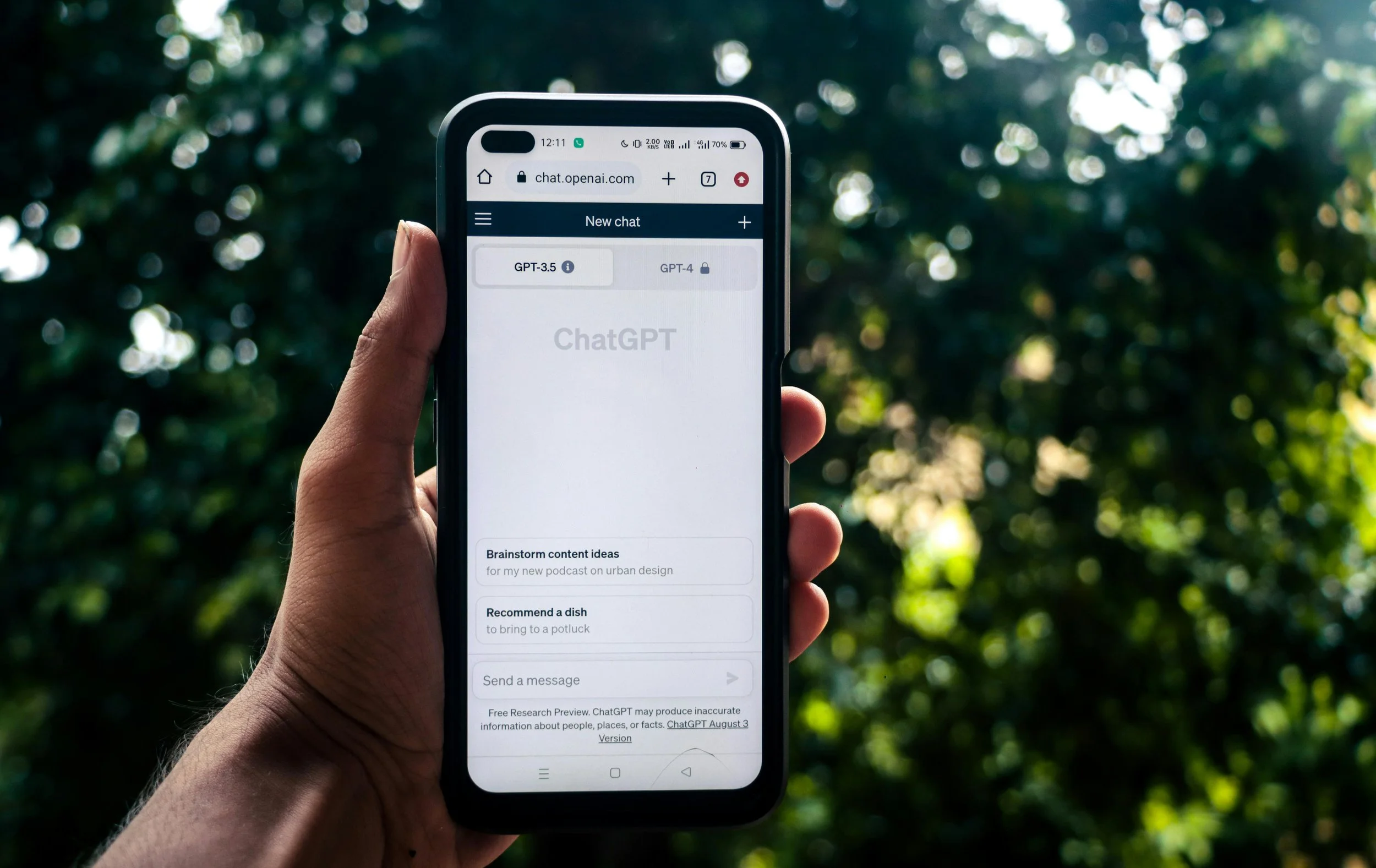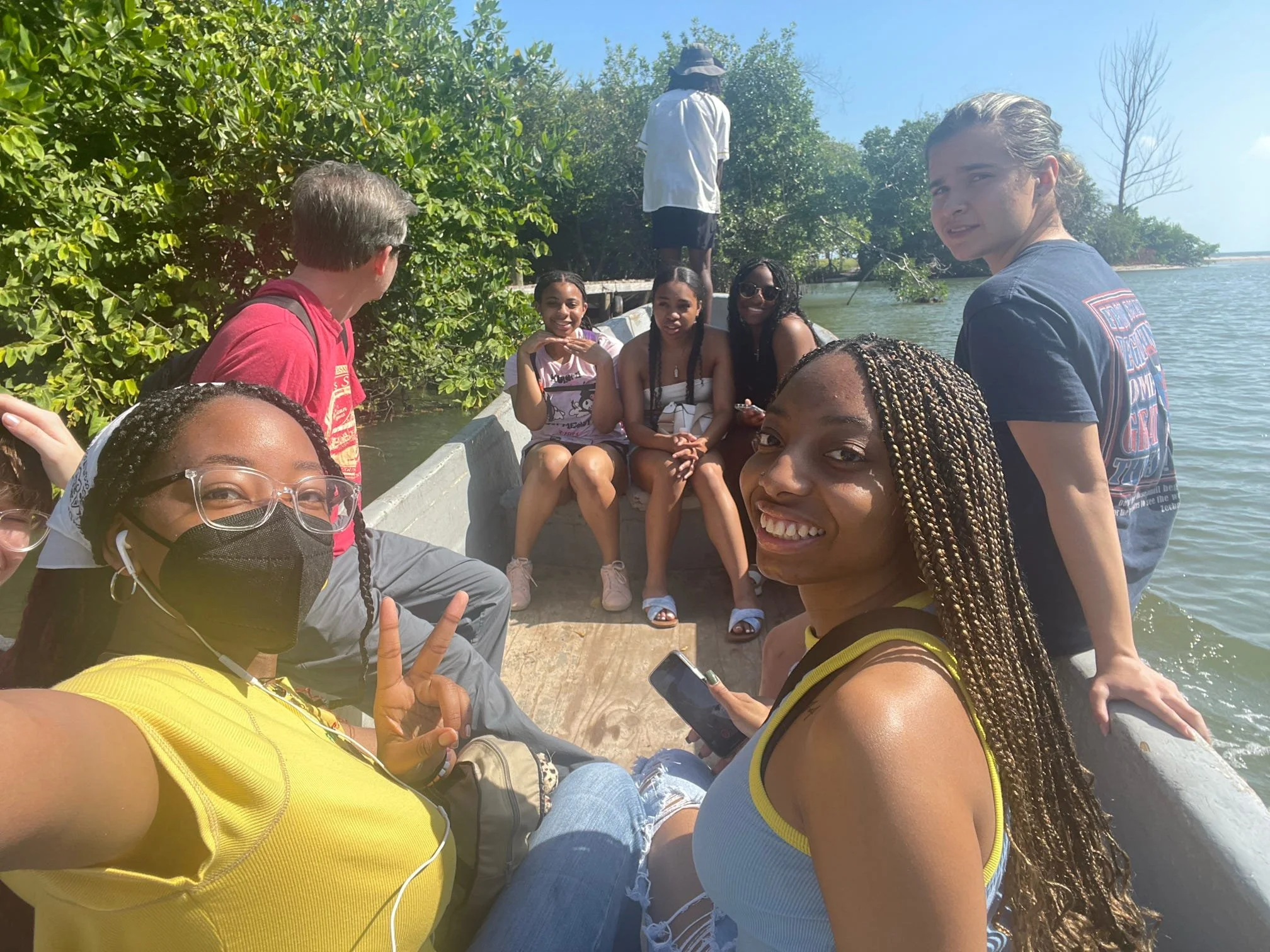Ethical AI Practices for Study Abroad: A Guide for Advisors and Faculty
/AI is revolutionizing study abroad, but are your ethics keeping pace? This new tool offers incredible power to personalize programs and streamline advising. Yet, without a clear framework, we risk amplifying bias and compromising student data. You want to leverage AI’s efficiency to enhance—not hinder—student safety and equitable access. It’s time to move from apprehension to action. Let’s build a responsible strategy that puts human judgment first. Read on to get our practical four-point framework for faculty and advisors.
What is AI, or Artificial Intelligence?
Before we dive into ethics, let’s make sure we are on the same page about AI. Artificial Intelligence (AI) is a field of computer science focused on creating software that can perform tasks that normally (read: used to) require human intelligence. Unlike regular computer programs, AI can learn from data, adapt to new information, and make decisions or predictions based on an algorithm.
How can AI be used in International Education?
AI is starting to play a big role in international education, both in how programs are designed and how students and institutions interact across borders. Here are some examples:
1. Student Support & Advising
Virtual Advising Assistants: AI chatbots can answer routine questions about visas, housing, course registration, or cultural adjustment, freeing staff for more complex advising.
Personalized Guidance: AI can analyze student profiles and suggest programs, scholarships, or internships abroad that fit their goals.
2. Language Learning & Communication
AI Translation Tools: Real-time translation and transcription can reduce language barriers in classrooms and administrative processes. Apple just announced that its new AirPods will be able to translate languages live using AI technology. This is revolutionary for study abroad!
Adaptive Language Learning Apps: AI-driven platforms (like Duolingo’s adaptive algorithms) personalize practice to a student’s pace and weak points.
3. Recruitment & Marketing
Predictive Analytics: AI can help universities identify which prospective students are most likely to apply or enroll.
Chatbots for Recruitment: Prospective students in different time zones can interact with AI-driven Q&A systems at any hour.
4. Teaching & Learning Abroad
Intelligent Tutoring Systems: AI can provide personalized learning support for international students struggling with new academic systems.
Virtual Exchange: AI can power immersive VR/AR classrooms where students collaborate across countries, simulating study abroad experiences.
5. Risk Management & Safety
Predictive Risk Monitoring: AI can analyze global news, social media, and government alerts to flag emerging risks for study abroad groups.
Automated Check-ins: AI-driven apps can monitor student location/safety and trigger alerts if someone is in an unsafe zone.
6. Research & Policy
Data-Driven Insights: AI can analyze mobility trends, retention rates, and student outcomes across countries to help universities and governments make policy decisions.
Equity & Access: AI can identify underserved groups and suggest interventions to widen participation in international education.
7. Administrative Efficiency
Document Processing: AI can streamline application reviews, transcript evaluation, and visa documentation.
Fraud Detection: AI can flag suspicious applications or falsified documents, a growing concern in international admissions.
Mitigate Bias in Program Matching & Advising
While AI has many potential applications and benefits, the first and most critical step in adopting any new technology is to understand its flaws. With AI, aside from taking over the world like in many science fiction novels and movies, the greatest danger is in its amplifying our own pre-existing biases. In other words, AI trained on historical data can perpetuate outdated or biased program recommendations. Study abroad staff should treat AI as a brainstorming tool, not a final answer. Your professional judgment is the final filter.
Specific Suggestions to Reduce Bias
Audit AI suggestions for diversity of location, cost, and academic focus
Use AI to expand options for underrepresented student groups, not limit them
Ask providers about their data sources and algorithm transparency
Uphold Academic Integrity
Ensuring equitable access is just the beginning. Once a student is enrolled in a program, a new ethical challenge emerges: how will they use AI in their academic work, and what are our responsibilities to guide them? Students will use AI for assignments and research abroad, and policing this practice is ineffective. We have to embrace it. AI is the new internet.
Much like faculty, International Education staff should teach responsible use of AI as a core modern skill. Staff should create clear and specific syllabus policies, taking into account that students will be using AI as one of many learning tools available to them.
Specific Suggestions Regarding AI Cheating
Mandate transparency: Require students to disclose and justify AI use in their work.
Design for experience: Create assignments that require personal, on-the-ground cultural reflection or experiential learning.
Discuss AI ethics explicitly during pre-departure orientations, stating expectations and policies.
Guard Student Data Privacy
While we manage how students use AI academically, we must also scrutinize the tools we use institutionally. The platforms we choose handle incredibly sensitive student data, introducing a non-negotiable duty to protect their privacy and security above all else. Sensitive data such as passports and medical info are governed under strict laws like FERPA and GDPR in Europe. Carefully vet every AI tool you might be using and check specifically the terms regarding their use of student data. Assume public AI models are insecure for personal data.
Specific Suggestions to Prevent Private Data Loss
Don’t do it alone: Consult your institution's legal and IT experts on vendor agreements and technology before implementing it
Read the fine print: Understand where and how a vendor stores and uses data.
Never input sensitive student information into open-source AI chats.
Maintain the Human-in-the-Loop for Critical Support
The core of international education is human connection and support, especially in moments of crisis. This is where we must draw line between helpful automation and essential human intervention. AI excels at automation but fails at empathy and crisis management. International Education staff should automate administrative tasks to free up time for high-value human interaction.
Specific Suggestions for Appropriate AI Use
Use AI for FAQs, scheduling, and deadline reminders—not for health, safety, or mental health communications.
Ensure all automated messages have a clear and immediate "talk to a human" option
Protect your time for the complex, empathetic advising that defines student success.
Conclusion
The promise of AI in international education is real, but it requires a conscious ethical framework to be effective. By actively mitigating bias, upholding academic integrity, guarding student data, and prioritizing human-in-the-loop support, we do more than just adopt a new tool—we protect our students and strengthen our programs. This is how we ensure this new and potent technology truly serves our mission of safe, equitable, and transformative global learning.














